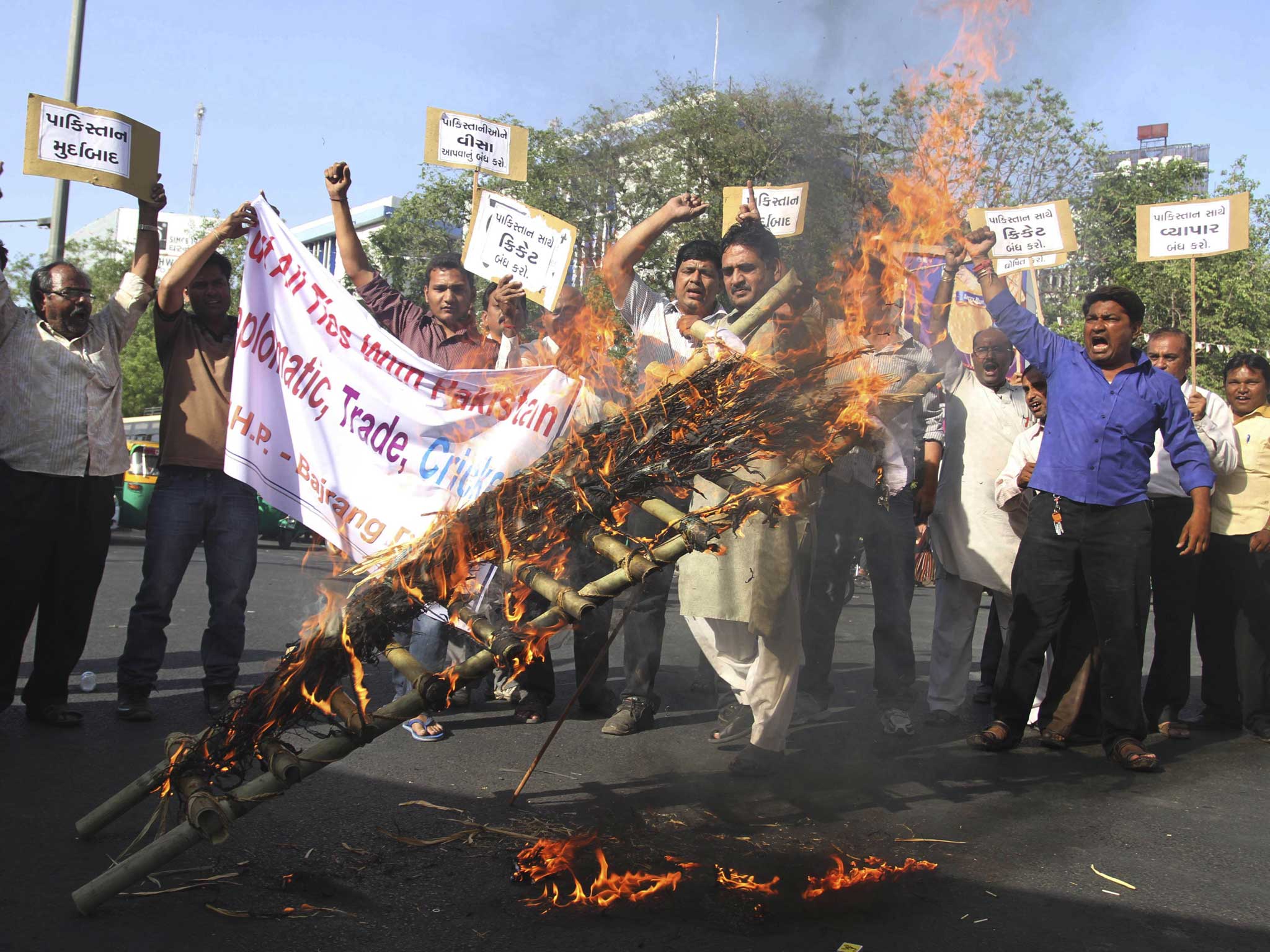India demands justice from Pakistan over death of convicted spy Sarabjit Singh in prison attack

The body of an Indian man convicted more than 20 years ago in Pakistan on terrorism and spying charges, is being flown back to India after he died following an attack in a jail in Lahore. The incident has the potential to fuel the opinions of hardliners on both side of the border.
Amid mounting anger in India and claims by relatives that the Indian authorities had not done enough to save him, the body of Sarabjit Singh was due to be flown to Amritsar on this evening.
The 49-year-old died in the early hours of this morning, almost a week after he was attacked with a brick by fellow inmates in Lahore’s Kot Lakhpat jail. As the Pakistani authorities announced an investigation, Mr Singh was taken to a hospital where he was placed on a life support machine. His family visited him earlier in the week but doctors reported that his condition was worsening and that he was in an “irreversible coma”.
India’s prime minister, Manmohan Singh, called for those responsible for the “barbaric and murderous” act be brought to justice. “It is particularly regrettable that the government of Pakistan did not heed the pleas of the government of India, Sarabjit's family and of civil society in India and Pakistan to take a humanitarian view of this case,” he added.
The Indian government has so far been cautious in its response to what happened. But the main opposition party has been increasingly outspoken, accusing Pakistan of “murder” and blaming the Indian government for not doing more to ensure the safety of Mr Singh. The opposition believes national security is an area over which it can easily attack the Congress-led government.
“It is a cold blooded murder. This is not the way civilised nations behave,” Sushma Swaraj, a senior leader of India’s Bharatiya Janata Party, said on social media.
Mr Singh was arrested in 1990 after two bombings in the Pakistani cities of Lahore and Faisalabad that killed 14 people. He was convicted of spying and carrying out the bomb blasts. Higher Pakistani courts upheld the verdict and the death sentence he was given.
The man’s family, by contrast, insisted that the Pakistanis had got the wrong man and that Mr Singh was a farmer who had inadvertently slipped across the border in a drunken stupor after drinking alcohol at his home in the town of Bhikiwind in the north of India’s Punjab state.
The Indian government has also said that Singh was not guilty of the charges that were levelled at him. A spokesman for India’s foreign ministry, Syed Akbaruddin, said the authorities had repeatedly raised Mr Singh’s case with the government of Pakistan. “If we thought he was guilty we would not have pursued his case at all,” he said.
In a statement, Pakistan's foreign office said the government was completing all formalities to hand over Mr Singh’s remains to the Indian high commission in Islamabad as early as possible.
Owais Shiekh, Mr Singh’s lawyer in Pakistan, told the Associated Press that his client had been fatally wounded after a big struggle. He added: “And as he has been brutally murdered that is very sad, I can share my condolences with the family and the whole Indian nation on this sad moment.”
Mr Singh’s sister Dalbir Kaur, who was among those who visited him in the Lahore hospital early this week, today called for snapping of ties with Pakistan. “It’s a murder by Pakistan,” she told reporters.
Earlier this week, Ms Kaur said she had asked the Indian government to take up with Pakistan the question of tightening her brother’s security after India hanged Mohammed Afzal Guru, a Kashmiri man, in February. She said her brother had feared being attacked by other prison inmates.
Join our commenting forum
Join thought-provoking conversations, follow other Independent readers and see their replies
Comments
Bookmark popover
Removed from bookmarks